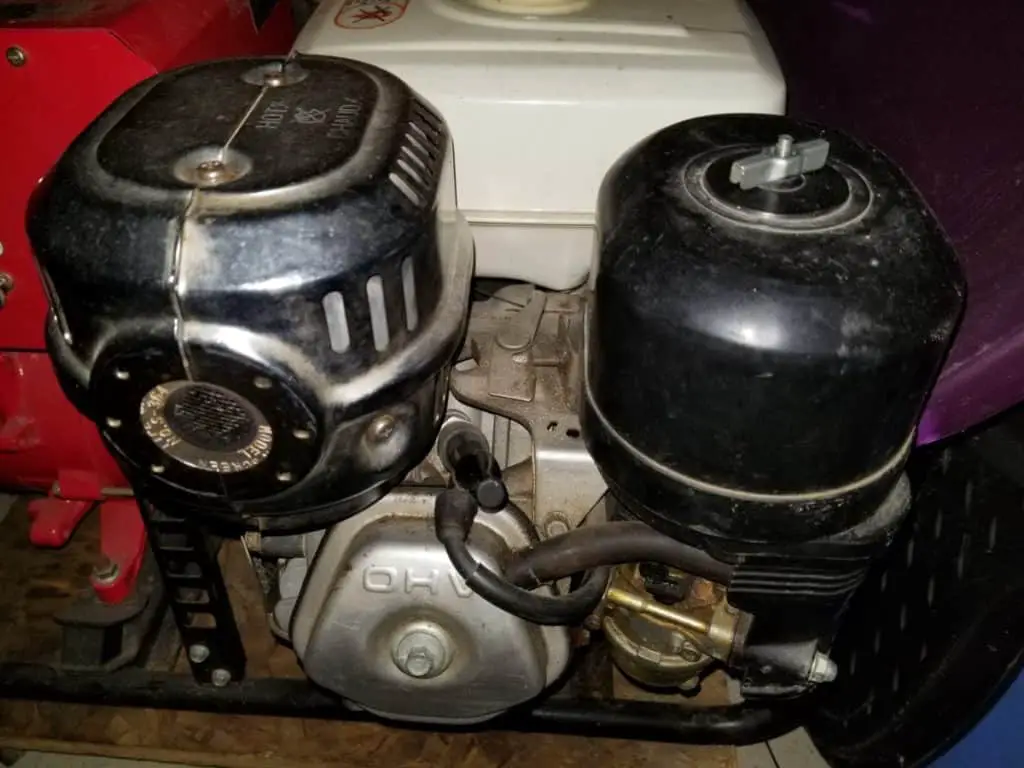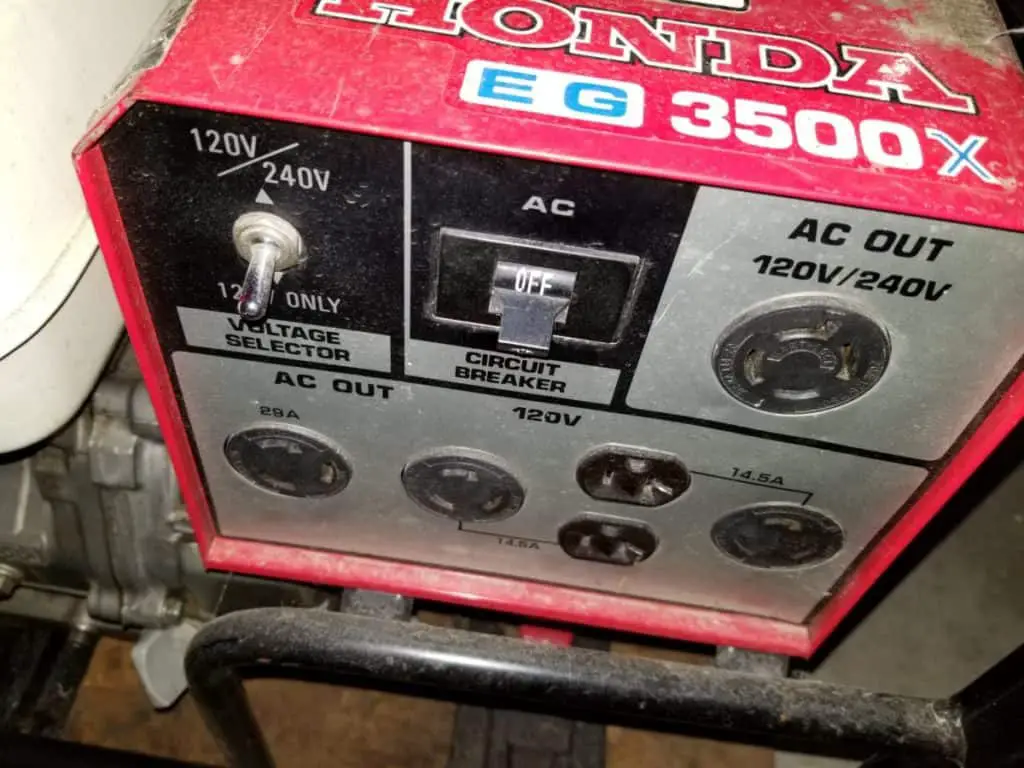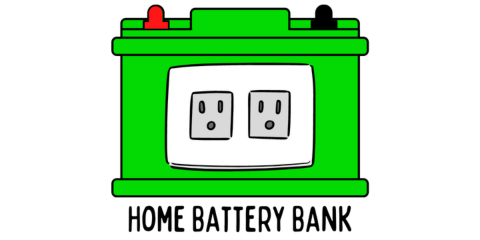The first time I had to run my generator during a power outage left me with a few questions. One of them was whether or not it was okay to let my generator run out of gas while in operation. More specifically, would it damage anything if it were to run out of gas?
Not quite sure of the answer I set out to find what I needed to know and hopefully this answer will help you out.
If your generator runs out of gas while running it can can cause irregular voltage spikes and dips that can damage appliances while your generator’s engine surges and stalls. The magnetic coils on the generator can also be damaged, but the engine is largely unaffected.
I’ll cover how the three primary aspects of running a generator are or are not affected by running out of gas (the engine, the generator itself, and your appliances), what you can do to prevent damage to your appliances, and how to best keep your generator from running out of fuel.
Is the Generator Engine Affected by Running Out of Gas?

When your generator is in the final minute or so before it runs out of fuel you will definitely notice that your engine will start to sputter and vibrate.
This is your fuel tank being empty and your carburetor running a lean mixture of more air than fuel. Within about 60 seconds or so of this starting your engine will stop. Mechanically speaking, you’re not doing any harm (or negligible at best) to your engine by doing this.
In fact, shutting off the fuel valve and letting your engine burn out the remainder of the gasoline in the carburetor until it stalls from a lack of gas is one of the most recommended ways to store your generator in between uses.
Doing this makes sure that gas is not sitting in the carburetor which increases the odds of it gumming up the jets and different orifices.
It also allows your float to descend which makes the needle drop from its sealed position and doesn’t disfigure the float needle or the rubber seat that it sits in.
So while you don’t have to worry about the engine itself, you should definitely take note of the next two topics.
Will the Actual Generator Itself be Harmed if it Runs out of Gas?

The generator itself, or the part that actually provides 120v to 240v to your appliances, is a different matter when it comes to running out of fuel.
The generator itself has coils inside that are required to keep a certain magnetism. Allowing your generator to run low and then out of gas will cause the appliances that are running on your generator to try to suck up every last bit of power that they can get as the voltage starts to drop.
This can lead to your coils losing their magnetism. They can be remagnetized, however, but that’s the last thing that you want to deal with in the middle of a power outage.
If your generator loses its magnetism, the engine will still start but it will no longer supply power.
You can actually recharge your magnetism (“flash” your generator) in many cases by yourself with nothing more than a corded drill.
With the generator’s engine running, plug your drill in. If it does not work when you pull the trigger you will need to hold the trigger down and grab the empty chuck (the end of the drill where the bit would go that spins) and twist it quickly in reverse (counter clockwise) several times by hand. Make sure the drill setting is set to forward (clockwise) when you do this.
This will actually send a but of current back into the generator itself and should be just enough to excite the magnetic field and get it working!
You can check out a video from Generac below.
Your Appliances Can be Damaged If Your Generator Runs Out of Gas
Your appliances are also in harm’s way if you let your generator run out of gas. When the generator runs out of gas it doesn’t simply go from delivering 110 to 120 folds consistently and then just cease.
There is violent fluctuation in voltage that spikes and plummets as your engine is sputtering as it tries to suck up every last little bit of gas that it can as the mixture gets leaner and leaner.
Therefore the power being delivered to your appliances is full of peaks and valleys and is especially hard on those with compressors and microprocessors. So things like your refrigerator, television, and electronics are not going to deal well with such an event happening.
When the power goes out to your home it’s generally an instant thing. It’s as if these appliances simply go from a perfect power source to nothing just like if you were to unplug them from the wall or turn them off with a switch.
Allowing a generator to slowly die over the course of 60 seconds as it runs out of gas and have your electronics struggle to maintain a proper voltage is just playing Russian Roulette.
How to Protect your Appliances from Voltage Spikes
The easiest and most cost effective way to help protect your appliances is to simply put your electronics like your TV and other sensitive devices on a surge protector. This will help to ensure that if you get a spike of voltage that could harm your devices that the surge protector itself will trip before damage is done to everything plugged into it.
It’s even a good idea to use surge protectors when your generator has a full tank of gas. The higher end priced generators will typically provide clean enough power but you can never be too sure. All it takes is one mechanical or electrical breakdown of your generator to provide irregular voltages to your appliances which can lead to damage.
Even having a surge protector for when the power is working is not a bad idea, as power from your wall outlets is not immune from surges caused by the power companies.
Remember that power strips are not the same as surge protectors! I used to think that they were the same. We’ve got a couple nice ones in the house and this is one on Amazon that I recommend. I like the 2-year warranty, the 5-star rating out of over 1,600 reviews and the additional USB plug in ports.
Look up Your Generator Model’s Guide to Estimate Fuel Time
It’s a good idea to look up your generator model ahead of time and find the specs with a PDF manual if you don’t still have yours with your generator.
This should give you a good idea of how long your generator can run usually on a 1/2 tank or a full tank while at a certain capacity. You can extrapolate out approximations from there.

Just make sure to take note of how much fuel is in your tank when you start running your generator (fill it, preferably), approximate a time and then come back about 30 minutes from that time to refuel your generator just to be safe.
Make sure you set a timer on your phone so that you don’t forget!
When is time to check the fuel level than your tank, turn off or unplug your appliances in the house. Then, turn off the AC power switch on your generator and then turn off the generator engine. Let the unit cool off for a few minutes, crack the seal on the gas cap, lift away carefully and refuel.

